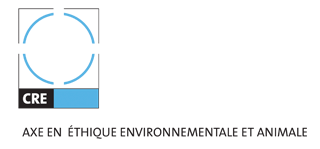
Agency, Domination and Resistance: Animal Rights in an Unjust World
Dans le cadre des ateliers du MANCEPT (en ligne -The University of Manchester, Schools of Social Sciences, Manchester, UK) 2020 sera tenue une table ronde intitulée « Agency, Domination and Resistance: Animal Rights in an Unjust World », co-organisée par Angie Pepper (University of Roehampton), Eva Meijer (Wageningen University & Research) et Josh Milburn (University of Sheffield).
8th – 11th September 2020
Parmi les nombreux.ses participant.e.s au programme, se trouvent nos chercheur.se.s Angie Pepper (co-organisatrice) et Eze Paez.
Angie Pepper – « Political Animals: Community, Resistance, and Deliberation »
I have defended the view that political agency is limited to those beings who can intend to affect institutions, who have the capacity for complex forms of shared intentionality, and who are able to imagine alternative political futures (Pepper, forthcoming). This view has, however, been rejected by some for operating with an anthropocentrically biased view of politics and political action that is too narrow and unfairly excludes nonhuman animals (e.g. Donaldson 2020; Meijer 2019). Moreover, defenders of political agency for nonhuman animals argue that my account cannot capture the seemingly political dimensions of nonhuman animal action and the richness and complexity of inter- and intraspecies relations. In this paper, I challenge some of these claims by exploring three of the allegedly paradigmatic ways that nonhuman animals manifest political agency: (1) social wilderness animals act as political agents in their self-determining communities; (2) nonhuman animals held captive by humans in zoos, farms, and research facilities act as political agents when they engage in acts of resistance and rebellion, such as, escape attempts, refusal to cooperate, and aggression; and (3) many domesticated animals act as political agents when they deliberate with us through embodied processes of mutual reason-giving and justification with humans. I ultimately argue that, while their agency is normatively significant, the actions of nonhuman animals in each of these contexts should rarely be read as manifestations of political agency
Eze Paez – « Wild Animal Suffering: The Freedom-based Approach »
Wild animals probably have net negative lives because of the naturogenic harms they suffer (Ng 1995; Horta 2010; Tomasik 2015; Faria 2016). Since there are over 1 quintillion of them (Tomasik 2009), they constitute the majority of sentient individuals. It is important to determine what reasons, if any, we have to assist them. Arguments for a permission or a requirement to help wild animals have been typically based on a concern for their well-being, rather than their freedom (Pearce 1995; Horta 2010; Palmer 2010; Faria 2014; McMahan 2015; Paez 2019a, 2019b). Even political accounts of our duty to help deny that animals have an interest in autonomy (Cochrane 2018). When a concern for the freedom, or sovereignty, of wild animal communities has appeared in the literature, it has been to argue for non-intervention (Donaldson and Kymlicka 2011). In my talk I will present a freedom-based account of our duty to assist wild animals. I will argue, first, that animals can be free or unfree. They cannot assess normative or evaluative principles, but they update their intentional states and choose according to them in pursuit of their aims. This kind of control is all that freedom requires. In order not to compromise it, we should relate to animals in ways compatible with the practical standards implicit in their rational and volitional activity. Second, guaranteeing their freedom requires us to recognise animals as our fellow citizens, immune from the unjustified interferences of others. But being in control is compatible with both scant and abundant opportunities for choice. The most important choice-situations of wild animals are restricted to flee-or-fight, greater or lesser suffering, or a more or less painful death. Concern for their freedom also requires us to improve the richness of their choices, if necessary by modifying nature.



